ELTE Research Centre for the Humanities | 1097 Budapest, Tóth Kálmán utca 4. | HU15854939

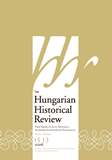 The latest thematic issue of The Hungarian Historical Review is entitled Saints Abroad. Its contents are available here. The periodical can be purchased or ordered at the HAS RCH Institute of History (MTA BTK Történettudományi Intézet, Budapest 1014, Úri u. 53. I. em. 57.; Phone: +36 1 224-6700/626. Mail: ) and at HAS RCH Penna Bookstore of Humanities (MTA BTK Penna Bölcsész Könyvesbolt, 1053 Budapest, Magyar utca 40., Phone: +36 30 203 1769, Mail: ). Single issue EUR 20, postage excluded; annual subscription for 2017: EUR 60 (EUR 75 for institutions), postage excluded. More information at www.hunghist.org.
The latest thematic issue of The Hungarian Historical Review is entitled Saints Abroad. Its contents are available here. The periodical can be purchased or ordered at the HAS RCH Institute of History (MTA BTK Történettudományi Intézet, Budapest 1014, Úri u. 53. I. em. 57.; Phone: +36 1 224-6700/626. Mail: ) and at HAS RCH Penna Bookstore of Humanities (MTA BTK Penna Bölcsész Könyvesbolt, 1053 Budapest, Magyar utca 40., Phone: +36 30 203 1769, Mail: ). Single issue EUR 20, postage excluded; annual subscription for 2017: EUR 60 (EUR 75 for institutions), postage excluded. More information at www.hunghist.org.
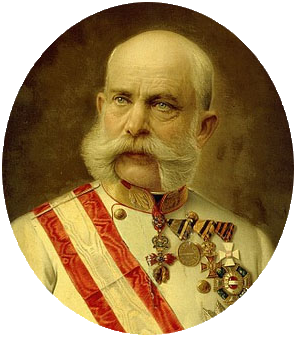 The International Conference Francis Joseph and Croats in World War I (Medjunarodni znanstveni skup Franjo Josip i Hrvati u prvome svjetskom ratu) took place on November 21, 2016 in Zagreb. The event, organized by Matica hrvatska with the support of Hungarian institute in Zagreb, studies the life of the emblematic ruler of the Austro-Hungarian Monarchy. The conference generated massive public and press interest. Our institute was represented by senior research fellows Imre Ress, Dénes Sokcsevits Dénes (also the Director of Hungarian Institute in Zagreb), and Krisztián Csaplár-Degovics. Details of the program can be found here.
The International Conference Francis Joseph and Croats in World War I (Medjunarodni znanstveni skup Franjo Josip i Hrvati u prvome svjetskom ratu) took place on November 21, 2016 in Zagreb. The event, organized by Matica hrvatska with the support of Hungarian institute in Zagreb, studies the life of the emblematic ruler of the Austro-Hungarian Monarchy. The conference generated massive public and press interest. Our institute was represented by senior research fellows Imre Ress, Dénes Sokcsevits Dénes (also the Director of Hungarian Institute in Zagreb), and Krisztián Csaplár-Degovics. Details of the program can be found here.
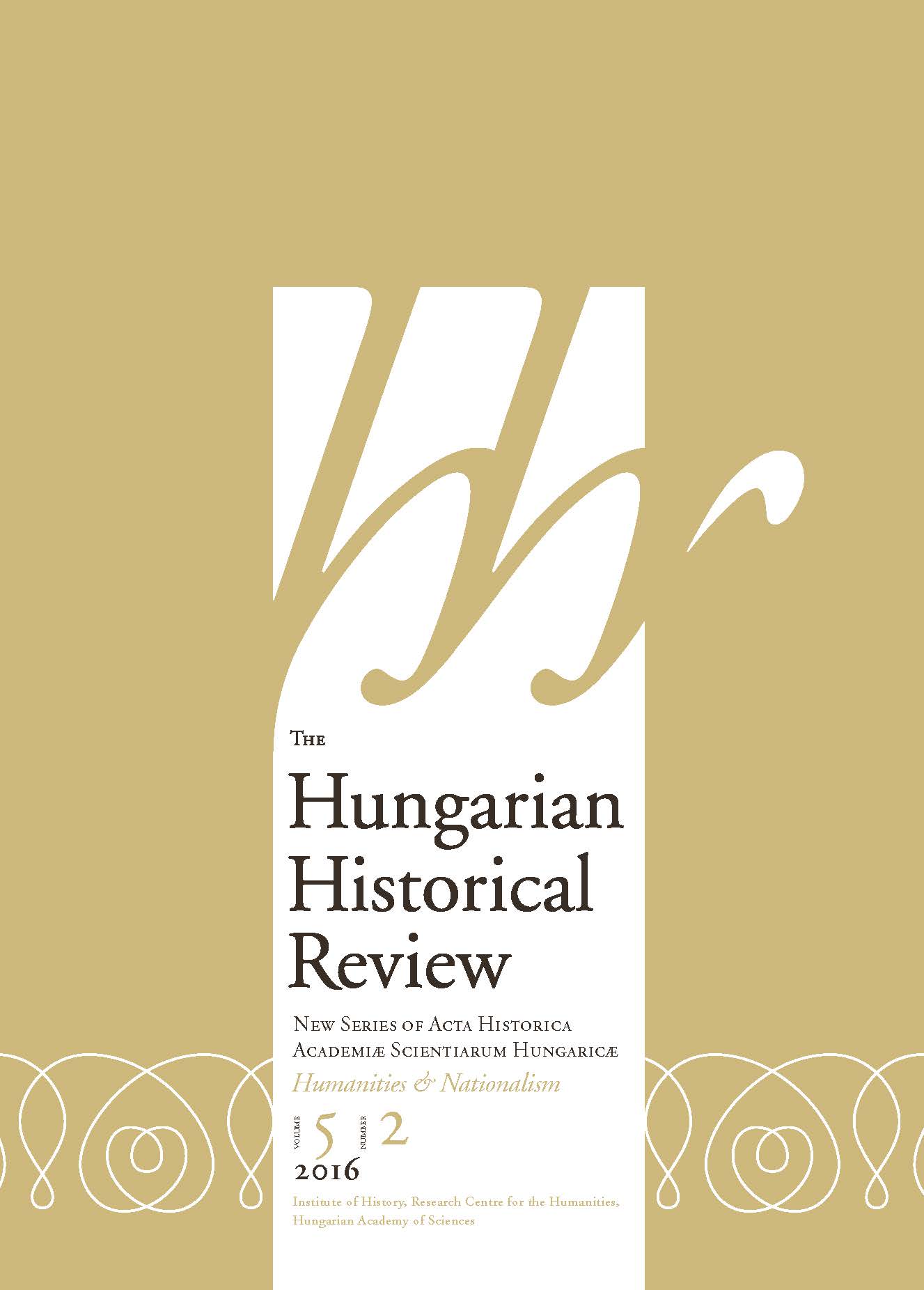 The latest thematic issue of The Hungarian Historical Review is entitled Humanities & Nationalism. Its contents are available here The periodical can be purchased or ordered at the HAS RCH Institute of History (MTA BTK Történettudományi Intézet, Budapest 1014, Úri u. 53. I. em. 57.; Phone: +36 1 224-6700/626. Mail: ) and at HAS RCH Penna Bookstore of Humanities (MTA BTK Penna Bölcsész Könyvesbolt, 1053 Budapest, Magyar utca 40., Phone: +36 30 203 1769, Mail: ). Single issue EUR 20, postage excluded; annual subscription for 2016: EUR 60 (EUR 75 for institutions), postage excluded. More information at www.hunghist.org.
The latest thematic issue of The Hungarian Historical Review is entitled Humanities & Nationalism. Its contents are available here The periodical can be purchased or ordered at the HAS RCH Institute of History (MTA BTK Történettudományi Intézet, Budapest 1014, Úri u. 53. I. em. 57.; Phone: +36 1 224-6700/626. Mail: ) and at HAS RCH Penna Bookstore of Humanities (MTA BTK Penna Bölcsész Könyvesbolt, 1053 Budapest, Magyar utca 40., Phone: +36 30 203 1769, Mail: ). Single issue EUR 20, postage excluded; annual subscription for 2016: EUR 60 (EUR 75 for institutions), postage excluded. More information at www.hunghist.org.
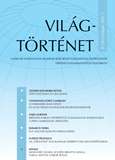 The second issue of Világtörténet this year is now available at the Institute of History of the HAS Research Centre for the Humanities. The present issue is entitled Crucifix and Crosshair – Friars and Missionaries in South America. The language of the journal is Hungarian, but each article includes an abstract in English. Contents: https://tti.btk.mta.hu/en/130-journals/2375-vilagtortenet-2016-2.html. Issues can be purchased at the institute or ordered directly with discount. Postage costs are paid by the customer.
The second issue of Világtörténet this year is now available at the Institute of History of the HAS Research Centre for the Humanities. The present issue is entitled Crucifix and Crosshair – Friars and Missionaries in South America. The language of the journal is Hungarian, but each article includes an abstract in English. Contents: https://tti.btk.mta.hu/en/130-journals/2375-vilagtortenet-2016-2.html. Issues can be purchased at the institute or ordered directly with discount. Postage costs are paid by the customer.
Subscriptions can be made at any Hungarian post office, but issues of the journal (including older issues) can be bought or ordered from the Institute as well (postal address: MTA BTK Történettudományi Intézet, 1014 Budapest, Úri u. 53.; telephone: 224-6700/624,626; e-mail address: ; .) and from MTA BTK Penna könyvesbolt (Bp. 1053 Magyar utca 40.; Phone.: 30/203 1769; ; as well as our partners.
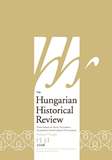 The latest thematic issue of The Hungarian Historical Review is entitled Continuities and Discontinuities: Political Thought in the Habsburg Empire in the Long Nineteenth Century. Its contents are available here. The periodical can be purchased or ordered at the HAS RCH Institute of History (MTA BTK Történettudományi Intézet, Budapest 1014, Úri u. 53. I. em. 57.; Phone: +36 1 224-6700/626. Mail: ) and at HAS RCH Penna Bookstore of Humanities (MTA BTK Penna Bölcsész Könyvesbolt, 1053 Budapest, Magyar utca 40., Phone: +36 30 203 1769, Mail: ). Single issue EUR 20, postage excluded; annual subscription for 2016: EUR 60 (EUR 75 for institutions), postage excluded. More information at www.hunghist.org.
The latest thematic issue of The Hungarian Historical Review is entitled Continuities and Discontinuities: Political Thought in the Habsburg Empire in the Long Nineteenth Century. Its contents are available here. The periodical can be purchased or ordered at the HAS RCH Institute of History (MTA BTK Történettudományi Intézet, Budapest 1014, Úri u. 53. I. em. 57.; Phone: +36 1 224-6700/626. Mail: ) and at HAS RCH Penna Bookstore of Humanities (MTA BTK Penna Bölcsész Könyvesbolt, 1053 Budapest, Magyar utca 40., Phone: +36 30 203 1769, Mail: ). Single issue EUR 20, postage excluded; annual subscription for 2016: EUR 60 (EUR 75 for institutions), postage excluded. More information at www.hunghist.org.
The Tetmajer Committee of indiana University invites applications for translation into English of Hungarian language books and manuscripts on 20th century Hungarian history. Works starting chronologically in the late 19th century are acceptable. The translators are designated by the Tetmajer Committee. The manuscript shall not exceed 120 000 words. The deadline for submission of books and manuscripts to be translated during 2017 is 15 November 2016.
Applicants must submit electronically
The full manuscript in Hungarian
Preferably a letter of intent from leading English language peer reviewed publisher stating willingness to publish manuscript pending peer review
An English language summary of manuscript of 5-10 pages
A table of contents
Send the application material electronically to László Borhi,
Applications are not accepted after the deadline. Up to two manuscripts will be selected for 2017. Successful applicants will be notified in December 2016. Materials sent by unsuccessful applicants will be deleted.
The Second Workshop Meeting of the Horizon2020 project COURAGE (“Cultural Opposition – Understanding the CultuRal HeritAGE of Dissent in the Former Socialist Countries”) took place in Warsaw at the Polish Academy of Sciences 16/17 June 2016
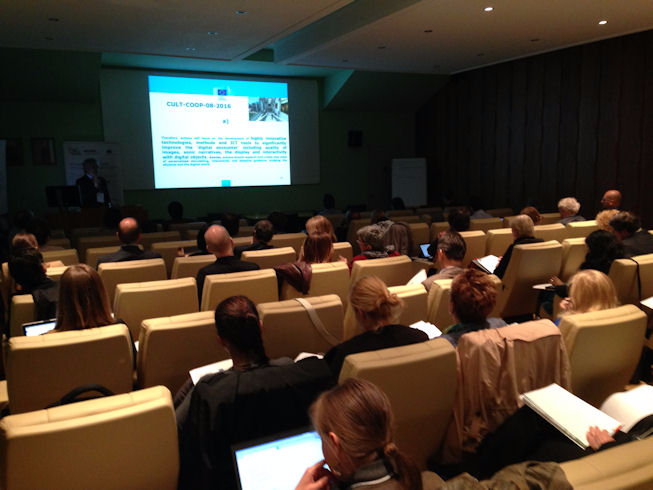 The scope of the seminar was to discuss how the RICHES project and its network including cultural heritage projects can provide insights to support evidence-based policymaking in Europe. The seminar included political updates by representatives from the European Commission, the presentation of policy recommendations from the RICHES project and a Round Table discussion involving major stakeholders.
The scope of the seminar was to discuss how the RICHES project and its network including cultural heritage projects can provide insights to support evidence-based policymaking in Europe. The seminar included political updates by representatives from the European Commission, the presentation of policy recommendations from the RICHES project and a Round Table discussion involving major stakeholders.
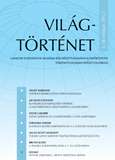 The first issue of World History (Világtörténet) for 2016, a thematic issue dedicated to Saint Martin of Tours) has been published. The present volume, edited by Marianne Sághy, contains multidisciplinary studies which reflect the new directions of the Martin-research on the occasion of the 1700th anniversary of the Saint’s birth at Savaria (modern Szombathely in Hungary). Attention is mainly focused on the hagiographical work of Sulpicius Severus, its late antique socio-religious background, and the examination of the early expansion (fourth to tenth centuries) of the cult, for these aspects have received little scholarly treatment in Hungarian so far. The impresarios of Saint Martin’s international cult were bishops, poets, kings, nuns, emperors and monks: each of them was attracted by a different element in the multifaceted personality of Martin, and the feature emphasised most varied from period to period, and from soldier to bishop, mystic to missionary. Saint Martin has remained the symbol of apostolic poverty and first monasticism for later Christian generations. It is hoped that these studies will not only contribute to a better understanding of the portrayal and cult of Saint Martin, but also give new momentum to Hungarian research of late antique hagiography.
The first issue of World History (Világtörténet) for 2016, a thematic issue dedicated to Saint Martin of Tours) has been published. The present volume, edited by Marianne Sághy, contains multidisciplinary studies which reflect the new directions of the Martin-research on the occasion of the 1700th anniversary of the Saint’s birth at Savaria (modern Szombathely in Hungary). Attention is mainly focused on the hagiographical work of Sulpicius Severus, its late antique socio-religious background, and the examination of the early expansion (fourth to tenth centuries) of the cult, for these aspects have received little scholarly treatment in Hungarian so far. The impresarios of Saint Martin’s international cult were bishops, poets, kings, nuns, emperors and monks: each of them was attracted by a different element in the multifaceted personality of Martin, and the feature emphasised most varied from period to period, and from soldier to bishop, mystic to missionary. Saint Martin has remained the symbol of apostolic poverty and first monasticism for later Christian generations. It is hoped that these studies will not only contribute to a better understanding of the portrayal and cult of Saint Martin, but also give new momentum to Hungarian research of late antique hagiography.
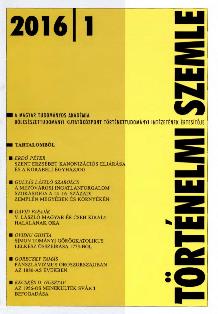 The first issue of Historical Review for 2016 has been published.
The first issue of Historical Review for 2016 has been published.
Péter Erdő’s study aimed at exploring the possible divergences and defects of the process with regard to the contemporary state of the canonization process. It was seeking answer to the question whether the process itself, in terms of its whole course and final result, was in keeping with contemporary prescriptions. László Szabolcs Gulyás’ essay explores the content of the customary law and its practical application in the market towns of northeastern Hungary in the late middle ages. The purchase, exchange, mortgage, alienation and bequest of real estate, as well as their offer to ecclesiastical institutions as pious donation was a general phenomenon in late medieval Hungarian market towns. Free disposition of various pieces of property – plots, houses, arable, mills, pasture, and before all vineyards – was an everyday and widely accepted occurrence. Supervision of real estate trade was a basic duty of the town council, a task it discharged on the basis of the town’s own customary law. Tamás Goreczky’s paper is primarily concerned with the internal and foreign affairs of Russia in the 1880s with a particular focus on one of the influential political phenomena of the decade, Pan-Slavism. The paper provides an overview of the Pan-Slavic movement and its politicians in the aforementioned time span, predominantly based on the reports of István Burián, the Austro-Hungarian consul general in Moscow. Gusztáv D. Kecskés’ study summarises what the Swiss authorities did in order to secure the reception of the refugees, the ways in which the local society reacted to the crisis, and the results that were yielded by the efforts. The conclusion of the author is that while the Swiss response perfectly fits into the general policies of the West, some local characteristics can also be grasped. He regards as the chief feature of success Cold War opposition and the determined governmental will which derived therefrom.
 Culture in Eastern Europe before 1989 meant more than socialist realism and dull propaganda art. An alternative cultural scene flourished despite the controls of socialist regimes, and its diverse practices included non-conformist avant-garde art, civic initiatives for unofficial education and publication, underground punk and rock bands, alternative ways of life and even novel religious practices. COURAGE (“Cultural Opposition – Understanding the CultuRal HeritAGE of Dissent in the Former Socialist Countries”) is the first international research project that tackles this rich and colourful legacy of cultural opposition in the former socialist countries of Eastern Europe by exploring and comparing collections on cultural opposition.
Culture in Eastern Europe before 1989 meant more than socialist realism and dull propaganda art. An alternative cultural scene flourished despite the controls of socialist regimes, and its diverse practices included non-conformist avant-garde art, civic initiatives for unofficial education and publication, underground punk and rock bands, alternative ways of life and even novel religious practices. COURAGE (“Cultural Opposition – Understanding the CultuRal HeritAGE of Dissent in the Former Socialist Countries”) is the first international research project that tackles this rich and colourful legacy of cultural opposition in the former socialist countries of Eastern Europe by exploring and comparing collections on cultural opposition.
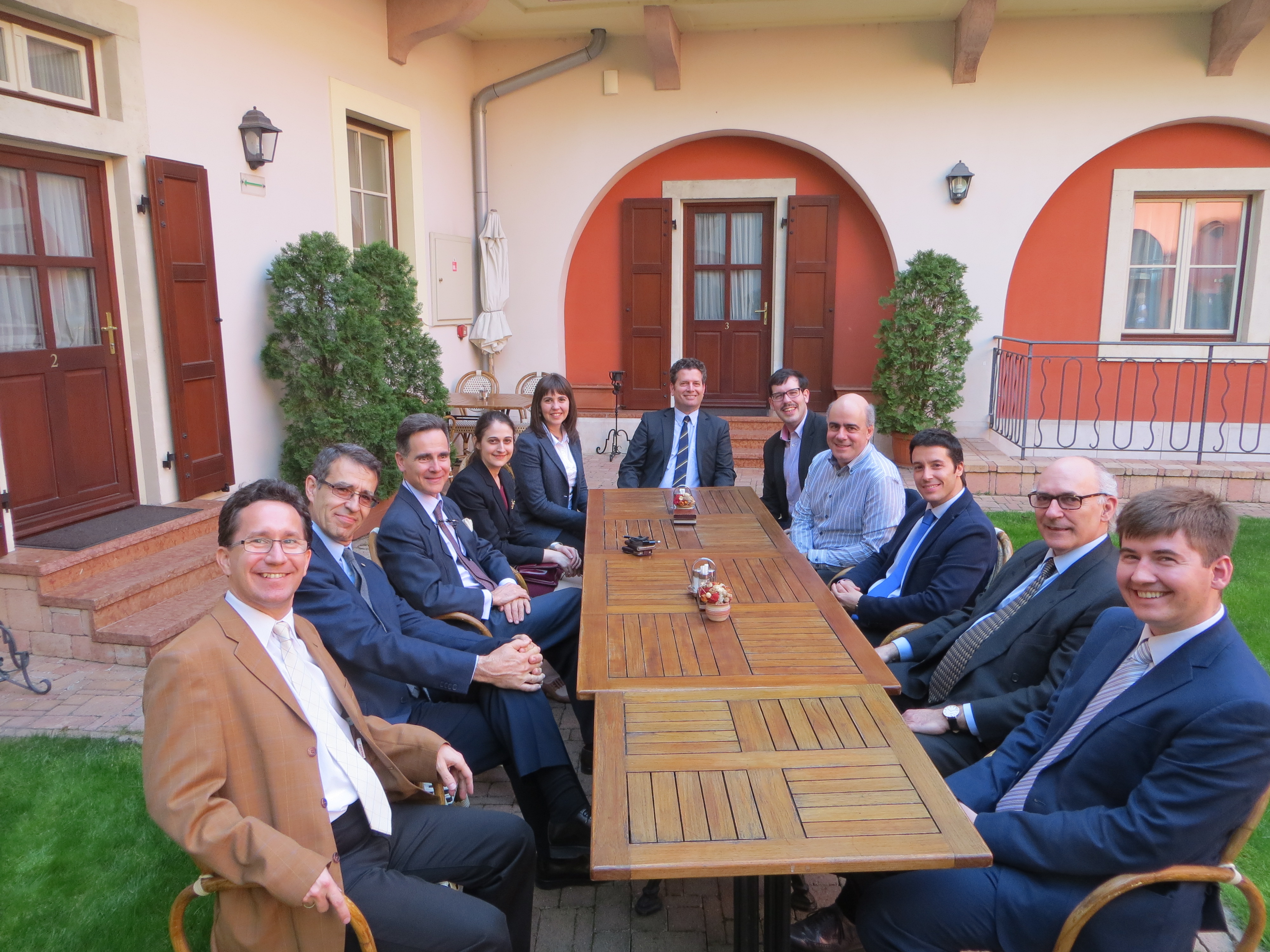
You can find our previous articles in the News Archive.